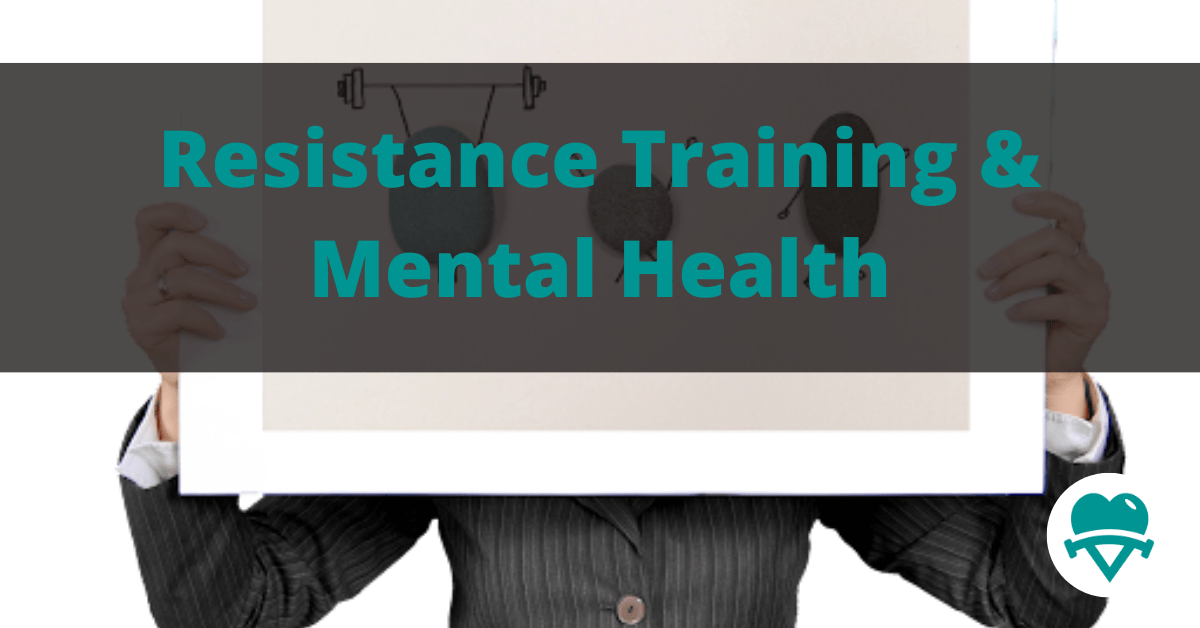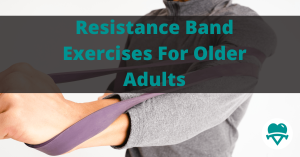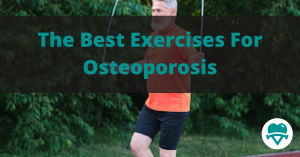As we age, it’s common to experience more issues with both our physical and mental health. However research has shown that regular exercise, specifically resistance training, can improve both physical and mental health in older adults. While the physical benefits of resistance training for older adults have been widely studied and well documented, less attention has been given to its potential impact on mental health.
In this article, we explore the effect of resistance training on mental health in older adults, including its potential to reduce symptoms of depression, anxiety, and cognitive decline. Additionally, we offer guidance to help you get started with resistance training (and all forms of exercise) as an older adult, and point you to some supporting resources.
Exercise and mental health in older adults
As well as declining physical health, it’s been proven that our mental health declines as we age. The Mental Health Foundation estimates that as many as a quarter of all older adults experience depression.1 Sleep problems, reduced cognitive function and social isolation are also all more likely, which increases the risk of experiencing mental health problems in older age.
Exercise has long been known to help boost our mood; the post workout high is a common phenomena. Usually, even if we don’t always enjoy the workout at the time, we feel better afterwards, right? That isn’t a coincidence – there are physiological reasons why this happens. After exercise the brain releases more ‘happy’ chemicals, such as dopamine and serotonin,. While feelings of self efficacy and achievement also help to improve our mood more generally.
There’s strong evidence to support the use of exercise for people of all ages with diagnosed mental health problems. Large research review studies show exercise has a moderate positive effect on depression symptoms across the general population.2 That’s why exercise is included in the NICE guidance for the treatment of mild to moderate depression. Randomised controlled studies have even shown that exercise is equally as effective as antidepressants.3
As well as depression, exercise can have a positive effect on other mental health conditions too – studies have shown that there is a correlation between exercise and improvements in conditions such as anxiety, schizophrenia, ADHD and PTSD.4
What are the benefits of resistance training on mental health?
When trying to assess the impact that physical activity has on our minds, studies have typically focused more on aerobic forms of exercise. But recently we’re seeing more research exploring the link between resistance training and mental health.
We already know the many benefits that resistance training can have in terms of our physical health, especially as we age. We previously published this in-depth guide exploring why strength training is even more important as we get older, in order to counteract natural deterioration that occurs in our bodies. It’s definitely worth a read if you’d like to learn more about that topic.
Here though, we wanted to look at the proven benefits of resistance training (strength training) on mental health specifically.
There are a number of systematic reviews (research reviews which have evaluated the best available evidence on a topic) that report significant improvements in rates of depression following resistance training programmes in older adults.5
A recent randomised control study demonstrated significant improvements in anxiety and depression scores in older women following a 12 week resistance training programme, consisting of strength exercises performed three times a week.6
Another study which included men and women in a 12 week strength training programme, showed that participants reported significant positive effects on anxiety and mood.7 A larger systematic review found significant benefits of resistance training on anxiety, in men with and without a diagnosed anxiety disorder.8
Is resistance training better than aerobic exercise for mental health?
There is evidence to show that both forms of exercise have a positive impact on mental health. A recent systematic review and meta-analysis supported combining aerobic and strength training exercise in older adults for improvements in depressive symptoms.9 Another review comparing resistance exercise, aerobic exercise and mind-body exercise in older adults with clinically diagnosed depression found positive and equivocal effects for each form of exercise.10
When looking at which form of exercise is ‘better’ for your mind, individual circumstances and personal preference are important here too. We know a number of different types of exercise show positive effects for mental health, and arguably the most important factor is that the exercise gets done to gain the benefits. So, which type of exercise do you prefer?
To sit on the fence, we’d argue that the best routine would be one which incorporates both aerobic and resistance exercise. We’re strong (excuse the pun) advocates of strength-based exercises to benefit your overall health, so we would always argue that resistance training should be factored into your lifestyle, even if it isn’t your most regular form of exercise.
How can I get started with resistance training?
Getting started with any form of exercise is difficult in the beginning, especially if you don’t feel confident. But strength training itself can improve feelings of self esteem, self efficacy and perceived confidence in physical abilities.11 So after the first hurdle, expect your self confidence to start quickly improving!
You can find a number of resources on this website to help you get started – including a free beginner home strength training guide with videos. There’s also plenty to read on our blog, and the opportunity for 1:1 online strength coaching sessions if you would like more support getting started, or you would like to take your strength journey further.
References
- www.mentalhealth.org.uk. (n.d.). Mental health in later life. [online] Available at: https://www.mentalhealth.org.uk/explore-mental-health/a-z-topics/mental-health-later-life.
- Hu, M.X., Turner, D., Generaal, E. et al. Exercise interventions for the prevention of depression: a systematic review of meta-analyses. BMC Public Health 20, 1255 (2020). https://doi.org/10.1186/s12889-020-09323-y
- Netz Y. Is the Comparison between Exercise and Pharmacologic Treatment of Depression in the Clinical Practice Guideline of the American College of Physicians Evidence-Based? Front Pharmacol. 2017 May 15;8:257. doi: 10.3389/fphar.2017.00257. PMID: 28555108; PMCID: PMC5430071.
- Rahman MZ, El Werfalli R, Lehmann-Waldau F. Current Evidence and Use of Physical Activity in the Treatment of Mental Illness: A Literature Review. Dtsch Z Sportmed. 2017; 68: 93-100. doi: 10.5960/dzsm.2017.279
- Khodadad Kashi S, Mirzazadeh ZS, Saatchian V. A Systematic Review and Meta-Analysis of Resistance Training on Quality of Life, Depression, Muscle Strength, and Functional Exercise Capacity in Older Adults Aged 60 Years or More. Biological Research For Nursing. 2023;25(1):88-106. doi: 10.1177/10998004221120945
- Paolo M. Cunha, André O. Werneck, João Pedro Nunes, Brendon Stubbs, Felipe B. Schuch, Gabriel Kunevaliki, Liye Zou & Edilson S. Cyrino (2022) Resistance training reduces depressive and anxiety symptoms in older women: a pilot study, Aging & Mental Health, 26:6, 1136-1142, DOI: 10.1080/13607863.2021.1922603
- Zanuso, S., Sieverdes, J.C., Smith, N.M., Carraro, A., & Bergamin, M. (2012). The effect of a strength training program on affect, mood, anxiety, and strength performance in older individuals. International Journal of Sport Psychology, 43, 53-66.
- Gordon, B.R., McDowell, C.P., Lyons, M., & Herring, M.P. (2017). The Effects of Resistance Exercise Training on Anxiety: A Meta-Analysis and Meta-Regression Analysis of Randomized Controlled Trials. Sports Medicine, 47, 2521-2532.
- Mahmoudi A, Amirshaghaghi F, Aminzadeh R, Mohamadi Turkmani E. Effect of Aerobic, Resistance, and Combined Exercise Training on Depressive Symptoms, Quality of Life, and Muscle Strength in Healthy Older Adults: A Systematic Review and Meta-Analysis of Randomized Controlled Trials. Biol Res Nurs. 2022 Oct;24(4):541-559. doi: 10.1177/10998004221104850. Epub 2022 May 26. PMID: 35619569.
- Miller, K.J., Areerob, P., Hennessy, D., Gonçalves-Bradley, D.C., Mesagno, C., & Grace, F.M. (2020). Aerobic, resistance, and mind-body exercise are equivalent to mitigate symptoms of depression in older adults: A systematic review and network meta-analysis of randomised controlled trials. F1000Research, 9, 1325 .
- Toshihiko Tsutsumi, Brian M. Don, Leonard D. Zaichkowsky, Laura L. Delizonna, Physical Fitness and Psychological Benefits of Strength Training in Community Dwelling Older Adults, Applied Human Science, 1997, Volume 16, Issue 6, Pages 257-266. DOI: https://doi.org/10.2114/jpa.16.257





